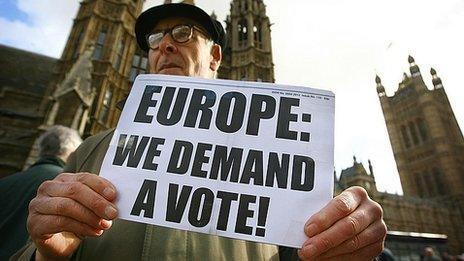David Cameron tells MPs EU 'status quo not acceptable'
- Published
David Cameron: "Less Europe not more Europe"
The prime minister has defended his position on a referendum on the UK's relationship with the EU.
He told MPs he did not want an immediate in/out referendum but said the "status quo" was unacceptable.
Earlier former Defence Secretary Liam Fox called for the UK's EU membership to be renegotiated - with a referendum to then follow on what was agreed.
Labour's Ed Miliband accused the PM of doing a "weekend hokey cokey" and trying to appease Tory Eurosceptics.
Reporting back to MPs on last week's EU summit, at which eurozone leaders agreed a bailout deal for their debt-laden banks, the prime minister said he did not want an immediate in/out referendum because he did not think leaving the EU would be in Britain's best interests.
"But nor do I believe that voting to preserve the exact status quo would be right either," he added.
"I do not believe the status quo is acceptable. But just as I believe it would be wrong to have an immediate in/out referendum, so it would also be wrong to rule out any type of referendum for the future," he said.
'Managing divisions'
He argued the "right path for Britain" was to recognise the short term priority of solving the eurozone crisis and then take advantage of "opportunities for Britain to shape its relationship with Europe in ways that advance our national interest".
This, he said, would mean "less Europe, not more Europe".
He concluded: "As a fresh deal in Europe becomes clear we should consider how best to get the fresh consent of the British people."
But the Labour leader accused Mr Cameron of lacking clarity and changing his position over the weekend, saying he was "managing his party, not leading the country".
He said: "It's nothing to do with the national interest. It is all about managing the divisions in his own party."
Mr Cameron has faced opposition from some Conservative MPs who want a stronger commitment on a referendum.
Last week a letter signed by 100 Conservative MPs called on the prime minister to prepare legislation committing the UK to an EU referendum after the next election.
Earlier, in a speech organised by the Taxpayers' Alliance, external, Liam Fox said coalition policies were "being curtailed by diktat from Brussels" and urged a referendum on the issue.
However, he said holding a referendum now "would be a huge error with enormous tactical risks", and that the UK should first seek to "negotiate a new relationship with the EU based on economic rather than political considerations, and set out in clear and unambiguous language".
If this failed, there would be "no alternative but to recommend rejection and consider departure from the EU".
'Abstract debate'
Mr Fox, who resigned last year after it was found he had breached the ministerial code in his working relationship with friend Adam Werritty, is seen as a leading figure among Conservative Eurosceptics.
Europe is seen as a divisive issue within the coalition government, with the Conservatives broadly less in favour of the EU than their Liberal Democrat partners.
Nigel Farage: ''If we are just going to have some sort of fudged referendum... then frankly that isn't good enough''
Deputy Prime Minister Nick Clegg, and Lib Dem leader, said that "the ink is barely dry" on legislation that would trigger a referendum if more powers were transferred to Brussels.
He said he and Mr Cameron had "different instincts" on Europe but the prime minister is "entirely entitled to talk as leader of his own party".
He added: "It is clearly not a priority now to have an abstract debate about a referendum on a question which is not yet specified on a date which is not yet specified on a set of circumstances which is not yet specified."
UK Independence Party leader Nigel Farage said leaving the EU should be among the choices presented to voters, arguing: "If we are just going to have a fudged referendum on 'do we stay in or go further?' then that's not good enough."
- Published2 July 2012
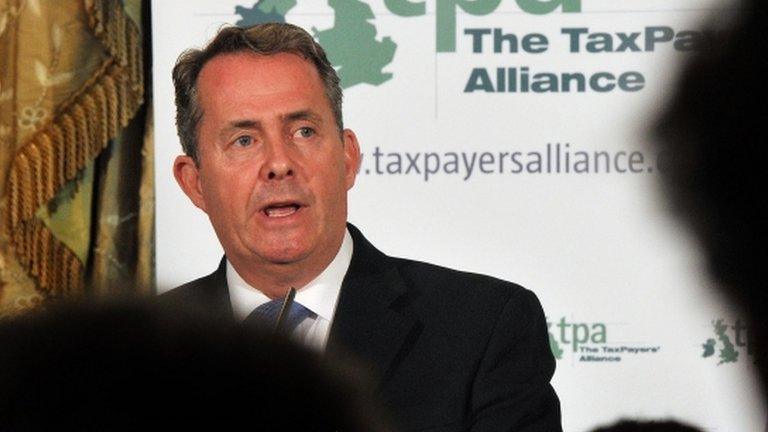
- Published1 July 2012
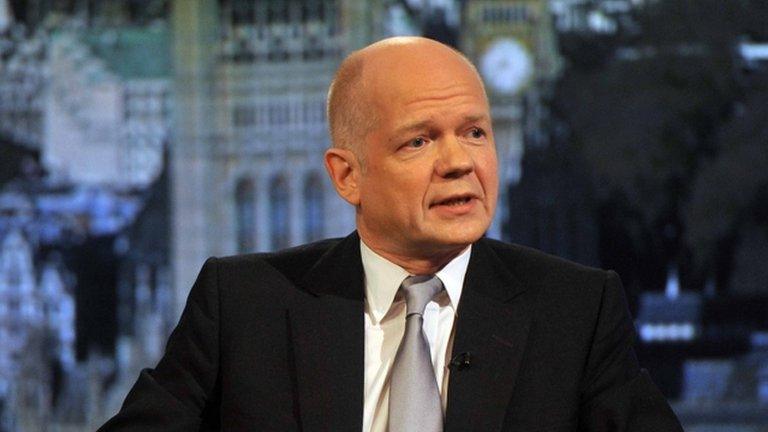
- Published1 July 2012
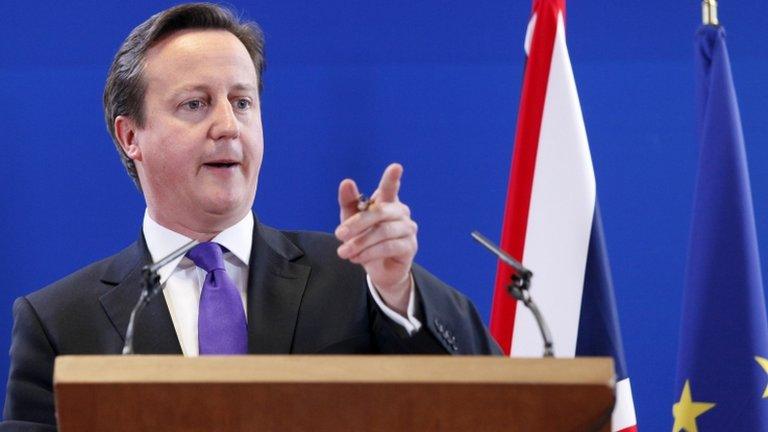
- Published28 June 2012
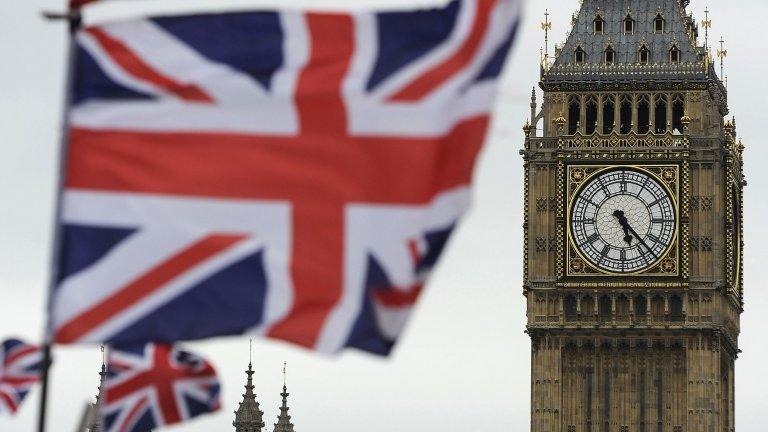
- Published21 May 2015
